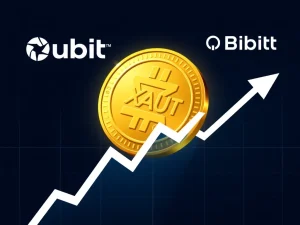Crypto News: 3 Crucial Developments Shaping Digital Assets Today

The world of cryptocurrencies consistently delivers significant developments. Staying informed with the latest crypto news is essential for anyone navigating this dynamic market. Today, several pivotal events have emerged, profoundly shaping the landscape of digital assets. From ambitious corporate strategies involving prominent altcoins to fundamental debates about Bitcoin’s identity, and even political initiatives embracing blockchain technology, the industry continues its rapid evolution. We explore these crucial stories, offering insights into their potential impact on the broader ecosystem.
Evernorth’s Bold Move: A $1 Billion XRP Treasury
Evernorth Holdings, a digital asset firm with established connections to Ripple Labs, recently announced its ambitious plan to go public. This move involves a merger with Armada Acquisition Corp. II, a Nasdaq-listed special purpose acquisition company (SPAC). This strategic maneuver aims to capitalize on the increasing institutional demand for publicly traded companies focused on digital asset treasuries. Consequently, the transaction expects to generate over $1 billion in gross proceeds. This figure includes a substantial $200 million investment from Japan’s SBI Holdings, a company with historical ties to SoftBank. Further backing is anticipated from major players like Ripple, Pantera Capital, Kraken, and GSR, according to company statements.
Evernorth plans to use these considerable funds to build one of the world’s largest XRP treasuries. This will occur through open-market purchases of the digital asset. Upon completion of the merger, the combined entity will reportedly trade on the Nasdaq under the ticker symbol XRPN. Evernorth CEO Asheesh Birla emphasized that this new investment vehicle aims to “accelerate XRP adoption.” This initiative comes amid growing interest in decentralized finance (DeFi). Therefore, it offers investors a public-market avenue to gain exposure to XRP and related digital-asset strategies.
Source: Asheesh Birla
Understanding the Significance of Evernorth’s SPAC
A Special Purpose Acquisition Company (SPAC) represents a shell corporation listed on a stock exchange with the purpose of acquiring a private company, thereby taking it public without a traditional Initial Public Offering (IPO). Evernorth’s choice of a SPAC for its public listing highlights a growing trend. More crypto-native companies are seeking mainstream financial market access. This strategy provides a faster and often less complex path to public markets compared to a conventional IPO. Furthermore, it offers a direct way for institutional investors to gain exposure to the crypto sector, specifically to XRP.
The creation of a massive XRP treasury signifies strong confidence in the asset’s long-term value and utility. Ripple Labs, which has faced regulatory scrutiny in the past, continues to build out its ecosystem. This includes fostering partnerships and supporting ventures like Evernorth. The substantial investment from entities like SBI Holdings and the anticipated backing from other industry giants underscore this institutional belief. Therefore, Evernorth’s public offering could catalyze broader institutional interest in XRP and other altcoins, potentially driving further market maturation and adoption.
Jack Dorsey Ignites Debate: “Bitcoin is Not Crypto”
Jack Dorsey, the visionary creator of Twitter (now X) and a vocal proponent of Bitcoin, has once again stirred significant discussion within the crypto community. His recent declaration on X, stating simply, “Bitcoin is not crypto,” prompted a massive response, garnering over 4,000 replies. This brief but impactful message reignited a long-standing debate regarding Bitcoin’s unique status in the broader digital asset landscape.
Many argued that Satoshi Nakamoto, the anonymous creator of Bitcoin, originally described it as a “peer-to-peer cryptocurrency” on the Bitcointalk forum in 2010. However, Dorsey deliberately highlighted the word “currency,” underscoring Bitcoin’s foundational monetary roots. Dorsey himself is an early Bitcoin adopter and has long been rumored to have played a role in its creation. Earlier this year, Seán Murray of deBanked published a list of circumstantial evidence suggesting this possibility, though it remains unverified. Dorsey denied being Nakamoto in a 2020 interview, famously stating: “No, and if I were, would I tell you?”
Looking at Bitcoin’s origins, Dorsey points out that the Bitcoin white paper – the foundational document introducing BTC in 2008 – makes no reference to “crypto.” This observation supports his argument that BTC stands apart from the broader industry. Instead, the white paper describes Bitcoin as a “purely peer-to-peer version of electronic cash” and an “electronic payment system based on cryptographic proof instead of trust.”
An excerpt from the Bitcoin white paper. Source: Bitcoin.orgIn a Bitcointalk post from July 2010, Satoshi Nakamoto also referred to Bitcoin as a “digital currency using cryptography and a distributed network to replace the need for a trusted central server.” This historical context reinforces Dorsey’s perspective, emphasizing Bitcoin’s original intent as a revolutionary form of money rather than just another digital token.
The Philosophical Divide: Bitcoin’s Identity in the Digital Assets Space
Dorsey’s assertion challenges the conventional categorization of Bitcoin. It forces a deeper examination of what distinguishes Bitcoin from the thousands of other digital tokens often grouped under the umbrella term “cryptocurrency.” Bitcoin’s unique attributes, such as its fixed supply, decentralized governance, and robust security through proof-of-work, set it apart. These characteristics align more closely with traditional notions of sound money rather than speculative digital assets. Moreover, its primary function as a store of value and a medium of exchange, as envisioned by Satoshi, reinforces its distinct identity.
The debate extends beyond semantics. It touches upon fundamental principles of decentralization, censorship resistance, and monetary policy. If Bitcoin is indeed a form of digital cash, it carries profound implications for its role in the global financial system. This perspective suggests that Bitcoin is not merely a technological innovation. Instead, it represents a paradigm shift in how societies perceive and utilize money. Consequently, this conversation continues to evolve as the digital asset landscape matures, prompting both enthusiasts and skeptics to reconsider Bitcoin’s enduring legacy.
Andrew Cuomo’s Vision: NYC as a Hub for Blockchain Technology and AI
Former New York governor Andrew Cuomo is reportedly making a significant bet on crypto and AI as central pillars of his bid to reclaim the city’s mayoral seat. The New York City mayoral candidate plans to transform NYC into “the global hub of the future.” This ambitious vision involves coordinating initiatives across the blockchain technology, AI, and biotech industries. Furthermore, it aims to modernize how the city integrates new technology into its infrastructure and services. Eleanor Terrett, co-host of Crypto in America, shared these insights on Saturday, citing sources familiar with Cuomo’s campaign strategy.
Part of this plan involves creating a new Chief Innovation Officer position. This role will specifically focus on attracting more investments and jobs to boost innovation within the city. Terrett added that an Innovation Council would also be formed. This council would feature three advisory committees dedicated to crypto, AI, and biotech. These committees would “advise on adoption, workforce development, and cutting red tape for these emerging industries,” she explained. This comprehensive approach underscores a serious commitment to positioning New York City at the forefront of technological advancement.
Source: Eleanor Terrett
Leveraging Digital Assets for Urban Innovation and Economic Growth
Cuomo’s proposal highlights a growing recognition among policymakers regarding the transformative potential of digital assets and related technologies. By embracing blockchain technology, New York City could streamline various municipal services. This includes enhancing transparency in public records, improving supply chain management for city procurement, and even facilitating more efficient voting systems. The integration of AI alongside blockchain could create smart city solutions, optimizing everything from traffic management to energy consumption. This holistic strategy aims to foster a vibrant ecosystem where innovation thrives, attracting top talent and companies to the city.
The creation of a Chief Innovation Officer and an Innovation Council demonstrates a proactive approach to technology adoption. These roles would provide dedicated leadership and expert guidance, ensuring that New York City remains competitive on a global scale. Moreover, by focusing on workforce development, the initiative seeks to equip residents with the skills necessary for the jobs of the future. This forward-thinking approach could set a new standard for urban development, showcasing how cities can strategically leverage emerging technologies to drive economic growth and improve the quality of life for their citizens.
The Broader Impact of Today’s Crypto News
Today’s significant developments collectively underscore the accelerating integration of cryptocurrencies and blockchain technology into mainstream finance, politics, and daily life. Evernorth’s public offering and its massive XRP treasury highlight the increasing institutional appetite for digital assets. This move validates the growing maturity of the crypto market. Meanwhile, Jack Dorsey’s provocative statements about Bitcoin’s distinct identity challenge conventional wisdom. They encourage a deeper understanding of its unique position and fundamental value proposition. This ongoing debate helps refine the narrative around Bitcoin, distinguishing it from the broader altcoin market.
Furthermore, Andrew Cuomo’s mayoral bid, centered on making New York City a global hub for blockchain and AI, illustrates the expanding influence of these technologies in governance and urban planning. This political endorsement signifies a critical shift. It moves digital assets from niche speculation to integral components of future economic strategies. Consequently, these events collectively point towards a future where cryptocurrencies are not just financial instruments. They are also powerful tools for innovation, economic development, and societal transformation. Staying informed about such crucial crypto news remains vital for understanding the evolving landscape.









